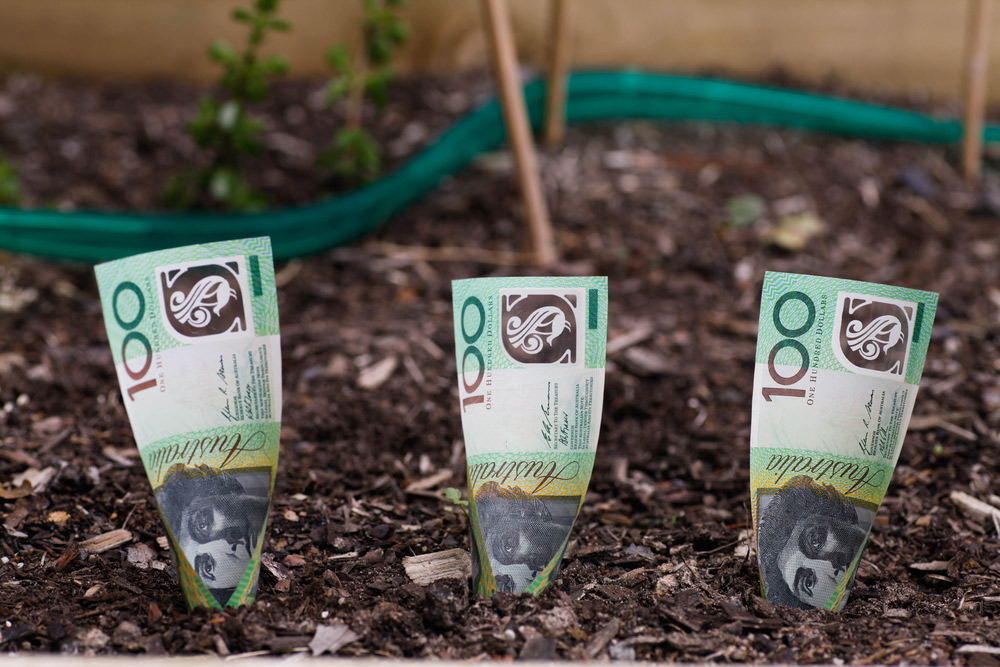Use Debt To Create Wealth in 3 Simple Steps

Most of us were raised with the idea that debt is bad. Debt drags you down. Rich people are never in debt.
While that may have been true for our great grandparents, it’s no longer the case. Debt is one of the keys that can unlock future wealth as a property investor. The more good debt you have, the more income you can create.
But, before you go out and put yourself $1 million in the hole, let’s talk about the right kinds of debt. The debt that’s going to lead to success, not ruin. This is called…
…DEBT LENDING
With real estate you can use your assets to create wealth. In simple terms, you can pull money out of one property in order to buy another. Equally borrowing money from a bank or other financial lender and using that cash to buy a property that is going to give you an income and increase in value over time, is a smart way to use debt to create wealth.
With record-low interest rates up for grabs, now is a great time to borrow money. Cash is cheap, which means borrowing and investing is more accessible to more people. The opportunity to create wealth as investors is in great shape.
But, even with low interest-rates, the banks aren’t just throwing cash around and there are steps you need to take to ensure you can borrow at your maximum amount and then leverage that cash to start building a portfolio.
STEP 1: CLEAN UP YOUR FINANCES
For at least three months before you want to borrow money that you can then use as a deposit, get your finances in shape. That means:
- getting rid of direct debits i.e. any ongoing drain on your finances and;
- cutting out any unnecessary spending
Your ability to borrow, and how much, will depend on how clean your accounts and budget look. Come up with a strategy to reduce your outgoings and get your accounts looking healthy.
STEP 2: THINK ABOUT HOW TO LEVERAGE YOUR LOAN
The point of borrowing for property investment is not about reducing your loan amount as quickly as possible. Let go of the idea that your debt is hurting you, when it’s actually your best friend.
Consider this. You have $100,000. Do you spend it all on one deposit, or take that cash and split it into two deposit amounts, and buy two properties? Can you leverage your debt to work harder for you and start to create cash flow faster?
If you can divide your deposit into smaller amounts and purchase more properties, your debt will start to create cash flow that much quicker.
STEP 3: GET THE RIGHT LOAN – AND DO YOUR NUMBERS
The difference between an interest-only loan and a principal interest loan is important when we’re trying to make debt work for us, not against us.
The key here is to read the terms, especially when it comes to interest-only loans. While they can be the smartest way to leverage your deposit to it’s maximum, you need to be aware of how your finances will need to adjust when the fixed term comes to an end.
Part of making debt your friend, not your enemy, is by respecting it and getting to grips with the terms and conditions attached. A smart property investor knows the cost of their interest and how that might affect their debt moving forward. In short – read the small print and pay attention. It’ll pay off.
DEAREST DEBT…
By now you’re probably aware that good debt can serve as a faithful friend on your journey to create real and lasting wealth.
The real key though, is ensuring you’re maximising your debt potential with a strong property investment plan that will set you up for long term financial success. To do this there are a lot of moving parts which is why we’re currently running a free property investment seminar.
Sign up to this extremely valuable event and learn the most crucial elements you need to be across to make sure your debt is working for you not against you.
This is a great opportunity to be equipped with the tools, resources and support to thrive, and not fall behind on your path to financial freedom – whatever that may look like for you.
Limited spaces are available. Book here now.
Recent Articles
House vs Apartment – Which Is Better for Capital Growth?
Many property investors favour one type of property – either apartments or houses. While there are pros and cons to both, which we will discuss here, one of the often forgotten advantages of houses is the investment you’re making not only in the bricks, but also in the land. Land value in itself increases over time, and investment in a piece of land also provides opportunity to renovate, subdivide and develop, all of which lead to greater capital growth.
Use Equity To Create Cashflow in 4 Simple Steps!
Equity is an interesting topic when it comes to real estate. Smart property investors know that equity can play a key part in creating passive income that accumulates over time, allowing us to eventually work less and ultimately do more of what we love. But in order to be able to use equity to create passive income, there are some important steps property investors need to take right at the beginning of their journey.
Economy Bounce-back Better Than Expected, What Investors Need To Know
Bouncing back much faster – and stronger – than predicted post-COVID, the Reserve Bank of Australia (RBA) is anticipating a good end to 2021, and a great 2022. But with so much uncertainty over the last 12 months, it’s hard to know if this economy is here to stay, and if so, how it will impact property investors in the long-run.
The Equity Tactic For Excelling Your Property Portfolio
While long term we know that cash flow is dependent on a good rental income, capital growth is the quickest way our property can pay us back. This comes down to having some smart tactics to get the most out of every dollar of value in our investment properties – something we like to call equity lock.
Are You at Risk of Losing Millions?
Considering that all major Australian cities are coastal, and most of the richest neighbourhoods are beachside, the growing threat of severe weather incidents due to global warming throws a serious spanner in the works when considering where to buy and invest. If you’re a climate change sceptic, we’re not here to judge. But that position isn’t going to help you if the institutions you rely on to protect your assets won’t have a bar of your $3 million beachfront house.
The Best Home Loan for Property Investors
Deciding on the right loan structure as a property investor, is a little bit like choosing the right outfit on a first date. It depends on what stage of life you’re at! If you’re new to the game, something a little daring might work best. Later on, you might want to play it safe. It’s the same for property investment and the stage you’re at reflecting how risky or safe your loan structure needs to be. Here we weigh up the pros and cons of principle and interest loans vs interest only loans for property investors.
The Three Golden Rules of Selling an Investment Property
Rules are an important part of life. And rules in most cases, are really just another word for common sense. They give us a clear framework around many important aspects of life, so it’s no surprise when it comes to selling your investment property, there’s a number of rules you need to follow in order to get the best result.
If you want to know when to sell an investment property, or even if selling an investment property is a good idea, all you have to do is read the rules.
Harness Data To Help Guide Property Investor Profits
I’m sure you’ve heard – data is the new currency. It’s the next big thing for business and it will be a catalyst for driving the world forward over the next few years. Learning how to harness the power of data in property investing, will be a secret weapon all investors can use to create more wealth. So, what is data? It’s information, insights and predictions that property investors can use to help them make smart property purchases.
A Lending Boom Is Coming Are You Ready?
After a lot of bad news over the past 12 months – thanks a lot COVID-19 – it’s nice to be able to kick off 2021 with some good news. There’s going to be a lending boom which, if you have your property investment strategy in place, is going to make your life a whole lot easier so you can build your property portfolio faster and cheaper.












